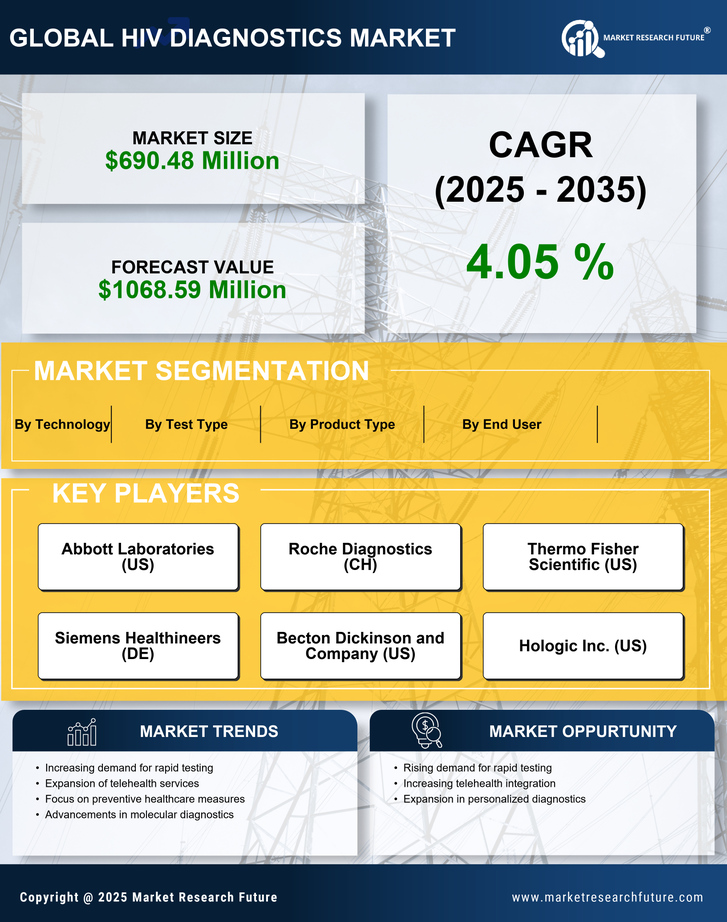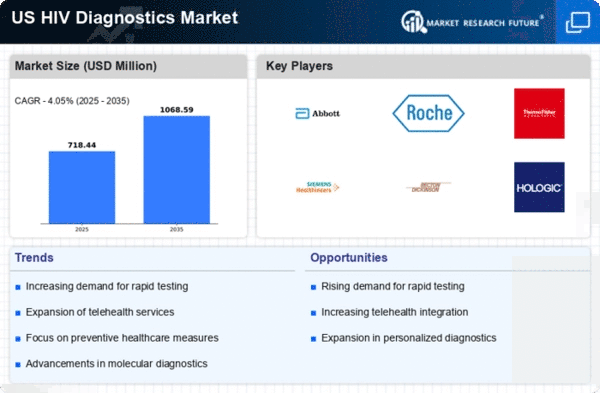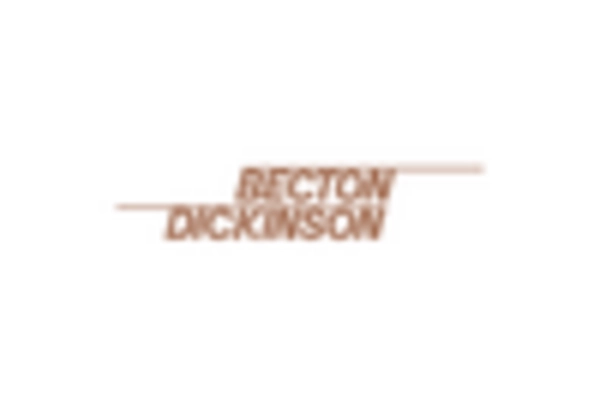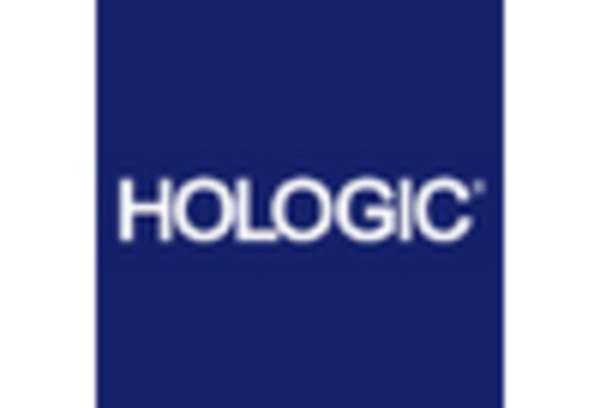Rising Prevalence of HIV
The increasing prevalence of HIV in the US is a critical driver for the HIV Diagnostics Market. According to the Centers for Disease Control and Prevention (CDC), approximately 1.2 million people in the US are living with HIV, with around 14% unaware of their infection. This substantial number underscores the necessity for effective diagnostic tools to identify and manage the disease. The growing population of individuals living with HIV necessitates enhanced testing capabilities, thereby propelling the demand for innovative diagnostic solutions. Furthermore, the rising incidence rates among specific demographics, particularly among young adults and marginalized communities, highlight the urgent need for targeted diagnostic strategies. As awareness of HIV continues to grow, the hiv diagnostics market is likely to expand, driven by the need for timely and accurate testing to facilitate early intervention and treatment.
Emergence of Point-of-Care Testing
The emergence of point-of-care (POC) testing is transforming the HIV Diagnostics Market by providing rapid and accessible testing options. POC tests allow for immediate results, which is crucial for timely diagnosis and treatment initiation. This shift towards decentralized testing is particularly beneficial in rural and underserved areas where access to traditional laboratory facilities may be limited. The convenience and speed of POC testing can significantly enhance patient engagement and adherence to treatment protocols. According to recent data, the POC testing segment is expected to witness substantial growth, potentially reaching a market value of $1 billion by 2026. This trend indicates a growing recognition of the importance of accessible diagnostic solutions in managing HIV. As healthcare providers increasingly adopt POC technologies, the hiv diagnostics market is likely to expand, driven by the demand for efficient and user-friendly testing methods.
Government Initiatives and Funding
Government initiatives and funding play a pivotal role in shaping the HIV Diagnostics Market. The US government has implemented various programs aimed at increasing access to HIV testing and treatment. For instance, the Ryan White HIV/AIDS Program provides essential services to individuals living with HIV, including diagnostic testing. Additionally, the CDC allocates substantial funding for HIV prevention and testing initiatives, which directly impacts the availability and development of diagnostic technologies. In recent years, federal funding for HIV-related programs has seen an increase, reflecting a commitment to combat the epidemic. This financial support not only enhances testing infrastructure but also encourages innovation within the hiv diagnostics market. As government policies continue to evolve, they are likely to foster an environment conducive to the growth of diagnostic solutions, ultimately improving health outcomes for those affected by HIV.
Growing Demand for Home Testing Kits
The growing demand for home testing kits is reshaping the HIV Diagnostics Market by offering individuals greater privacy and convenience. As awareness of HIV increases, more people are seeking accessible testing options that can be performed in the comfort of their own homes. Home testing kits provide a discreet alternative to traditional testing methods, which may deter some individuals from seeking necessary care. Recent surveys indicate that nearly 50% of individuals would prefer to use home testing kits for HIV screening. This trend is likely to drive innovation within the hiv diagnostics market, as manufacturers develop user-friendly and reliable home testing solutions. The convenience of home testing may also lead to increased testing rates, ultimately contributing to better public health outcomes. As the market adapts to this growing demand, the availability and variety of home testing kits are expected to expand, further influencing the dynamics of the hiv diagnostics market.
Advancements in Molecular Diagnostics
Advancements in molecular diagnostics are significantly influencing the HIV Diagnostics Market. Technologies such as polymerase chain reaction (PCR) and next-generation sequencing (NGS) are enhancing the accuracy and sensitivity of HIV testing. These innovations allow for the detection of the virus at lower levels, enabling earlier diagnosis and better monitoring of treatment efficacy. The increasing adoption of molecular diagnostic techniques is expected to drive market growth, as healthcare providers seek more reliable testing options. Recent estimates suggest that the molecular diagnostics segment could account for over 30% of the total hiv diagnostics market by 2027. This shift towards more sophisticated testing methods reflects a broader trend in healthcare towards precision medicine. As molecular diagnostics continue to evolve, they are likely to play a crucial role in the future of the hiv diagnostics market, improving patient outcomes through enhanced testing capabilities.

















